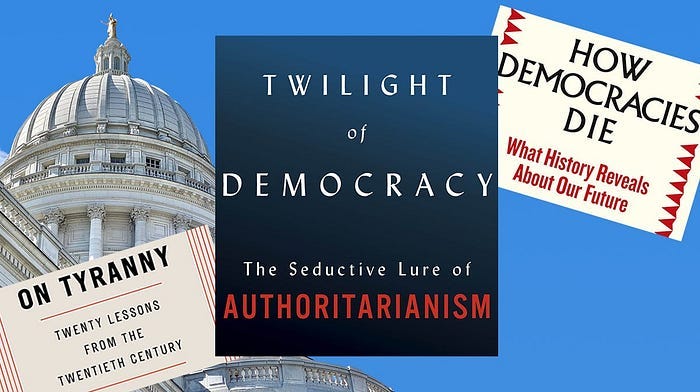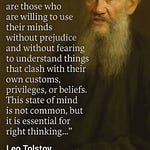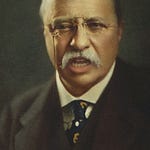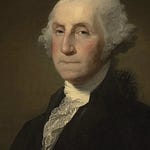The consolidation of executive power at the expense of legislative and judicial oversight has been a recurring threat to democracy throughout history.
In the United States, the potential erosion of democratic norms, as highlighted by Donald Trump’s alleged plans to wield impoundment and propaganda to undermine Congressional authority, reflects a broader global trend. Authoritarianism often rises not with the loud clamor of revolutions but through quiet encroachments on institutions and norms. This article examines historical precedents, contemporary dynamics, and the steps required to safeguard democracy.
Historical Comparisons: Consolidation of Power and Democratic Decline
1. The Roman Republic and Julius Caesar
One of the earliest examples of democratic erosion occurred in ancient Rome. The Roman Republic, which thrived for centuries, fell as leaders like Julius Caesar consolidated power. Caesar’s crossing of the Rubicon in 49 BCE symbolized the ultimate disregard for institutional checks, transitioning Rome from a republic to an autocracy. His accumulation of authority undermined the Senate’s role, a pattern that mirrors modern leaders seeking to bypass or neutralize legislative bodies.
The Roman example is a stark warning: even robust democracies can crumble when the concentration of executive power goes unchecked.
2. Weimar Germany and Adolf Hitler
The Weimar Republic in Germany, established after World War I, faced significant internal challenges. Economic instability and political polarization created an environment ripe for exploitation. Adolf Hitler, initially appointed chancellor in 1933, quickly consolidated power through the Reichstag Fire Decree and the Enabling Act, effectively sidelining Germany’s democratic institutions. By framing his actions as necessary for national security, Hitler manipulated public fear to justify authoritarian rule.
This historical parallel underscores the dangers of exploiting crises — whether economic, political, or social — to erode democratic norms and centralize power.
3. Richard Nixon and the Impoundment Battle
In the U.S., the struggle over impoundment came to a head during Richard Nixon’s presidency. Nixon withheld funds appropriated by Congress for programs he opposed, challenging the separation of powers. This led to the Impoundment Control Act of 1974, designed to limit the executive branch’s ability to unilaterally control federal spending. Nixon’s actions reflect how leaders can seek to undermine legislative authority, a dynamic reportedly echoed in Trump’s alleged plan to revisit impoundment as a political weapon.
While Nixon’s presidency ended in resignation after the Watergate scandal, his actions serve as a reminder of the ongoing tension between branches of government.
Contemporary Challenges:
The Role of Propaganda and Polarization
1. Propaganda and Public Perception
Propaganda is a key tool for leaders seeking to consolidate power. By controlling narratives and distorting facts, authoritarian-leaning leaders can manipulate public opinion to justify undemocratic actions. In George Orwell’s 1984, the slogan “War is peace. Freedom is slavery. Ignorance is strength” illustrates how language can be weaponized to normalize contradictions and suppress dissent. Today, misinformation and echo chambers on social media serve similar functions, amplifying divisive narratives and undermining trust in democratic institutions.
2. Tribalism and the Fragmentation of Truth
The digital age has fractured the media landscape, creating environments where individuals consume information that aligns with their biases. This tribalism erodes critical thinking and fosters polarization, making it easier for leaders to consolidate power by exploiting divisions. The inability to agree on basic facts creates fertile ground for authoritarian narratives.
Global Trends:
A Rising Authoritarian Tide
The pressures facing American democracy are not unique. Around the world, authoritarian leaders are challenging democratic norms:
Russia: Vladimir Putin has eroded democratic institutions through constitutional changes, propaganda, and the suppression of dissent. His control over the media and judiciary has allowed him to remain in power far beyond conventional limits.
Hungary: Viktor Orbán has undermined democratic checks through constitutional amendments, media control, and attacks on civil society, turning Hungary into a cautionary tale of “illiberal democracy.”
Turkey: Recep Tayyip Erdoğan has centralized authority by weakening judicial independence and suppressing opposition, particularly after the failed coup attempt in 2016.
These examples highlight the universality of the threat posed by the erosion of democratic norms. Democracies that fail to address these trends risk slipping into authoritarianism.
The Role of Citizen Engagement and Media Accountability
1. Vigilance Against Power Grabs
The separation of powers is a cornerstone of democracy. Citizens must remain vigilant against attempts to consolidate executive authority at the expense of legislative oversight. This includes holding leaders accountable for actions that undermine institutional checks and balances.
2. Media Literacy and Accountability
A free and independent press is essential for exposing abuses of power and countering propaganda. However, citizens must also develop media literacy to discern fact from disinformation. Supporting credible journalism and engaging with diverse perspectives are critical steps in combating misinformation.
3. Strengthening Institutions
Democracies must fortify their institutions against encroachments on their independence. This includes enacting and enforcing laws like the Impoundment Control Act to prevent overreach and ensuring that judicial systems remain impartial.
Lessons and Reflections
The potential erosion of democratic norms in the United States serves as a wake-up call for democracies worldwide. History demonstrates that the consolidation of power is often gradual, cloaked in rhetoric that appeals to fear, nationalism, or economic necessity. By examining the patterns of the past, we can better understand the dangers of the present.
The fight for democracy is ongoing. It requires an engaged citizenry, a vigilant press, and strong institutions to resist the allure of authoritarianism. The lessons of history remind us that democracy’s survival depends not on its permanence but on our collective commitment to its principles.
Democracy, as Abraham Lincoln once said, is “government of the people, by the people, for the people.” To ensure it does not perish, we must remain steadfast in defending it against the forces that seek to undermine its foundations.











